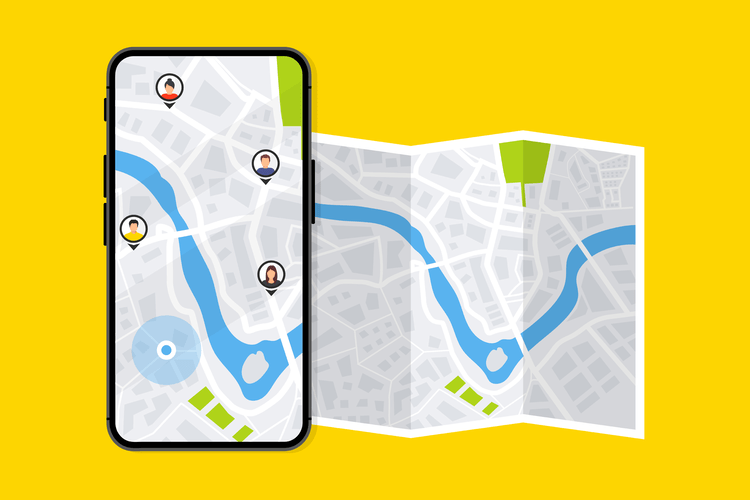We offer free consultations to information you through decision-making and guarantee your cellular software achieves its full potential. Airbnb is a digital marketplace for providing homestays, lodging, and tourism experiences. While Airbnb has been utilizing different frameworks lately, React Native helped the corporate accelerate the event of its mobile app a quantity of years ago. By the means in which, this option is also out there for the desktop websites if it was applied by builders. PWA bypasses the cumbersome App Store requirements as a outcome of customers only need an online browser and a URL.
You may or may not obtain a response via the email address provided. For fast help and more details, please sign up utilizing the book demo type as an alternative. On the opposite hand, a whole Magento POS system offers extra advanced capabilities, together with stock management, provider management, loyalty packages, and extra.
Many fashionable PWAs are starting to borrow a leaf from this as properly and may fit offline using cached information. As a corollary, the price of the sleek performance of native apps is that they’re usually heavyweight and resource-intensive. Since nothing is installed in your device, they take up very little memory area in your gadget. For occasion, Starbucks’ Progressive Web App uses ninety nine.84% less space in comparability with its iOS app. Similarly, X’s (formerly Twitter) Progressive Web App is only about 1-3% of the size of its native app. For native functions, you’ll need to construct at least two variations of the positioning (for iOS and Android) utilizing completely different programming languages.
Pros Of Native Apps
PWAs are web apps that work seamlessly on any device, offering a native-like experience with the convenience of a internet site. On the other hand, native apps are platform-specific purposes put in through app stores, optimized for the hardware and software program capabilities of a particular platform. Both native apps and PWAs have separate use cases and are ideal for completely different goals (and enterprise lifecycles). After all, when you might construct a PWA and get a really cross-platform, no-download expertise with all the benefits of internet and native functions almost for free…why wouldn’t you?
Even though PWAs are net apps, they’ll entry the device’s hardware options, together with geolocation, NFC, file storage, and more. By using service workers and caching technologies, progressive web apps load extremely quickly and may work in offline mode. Web development using PWA is gaining popularity because of its versatility and massive audience. But, like most other applied sciences, they come with strengths and weaknesses.
- If the app developer solely releases an Android model, iOS users could have no access to the app, and vice versa.
- Despite operating on cellphones, each PWA and native apps are built with totally different tech stacks.
- Some terms you’ll probably come across regularly include Progressive Web Apps, hybrid apps, and native apps.
- This allows them to work on pretty much any device with a web browser.
- As for updates, they are often guide or automated depending on the user’s system settings.
- This boosts their reliability and offers users more confidence to download and set up the application on their units.
Native apps typically benefit from sturdy security measures, providing a secure setting for dealing with sensitive customer info, such as fee particulars. This can contribute to constructing trust amongst customers, crucial for profitable retail transactions. Native apps eat much less battery energy than PWAs as a end result of they are developed within the native language of the operating system and can be utilized in offline mode. As mentioned earlier, a PWA can run across multiple operating methods. This eliminates the want to write separate codebases and think about OS-specific functionality.
Native apps offer optimized person interfaces and intuitive features for a seamless social media expertise. The primary distinction between PWAs and native apps lies in their implementation and functionality. PWAs supply cross-platform compatibility and can be accessed through a browser, making them versatile and accessible on any gadget.
Let’s summarize every thing mentioned in the article and at last reply the native apps vs PWA question. Native apps, on the other hand, have full entry to device features and APIs, which allows them to place the hardware to full use. Besides loading rapidly, they will also perform resource-intensive duties fast and efficiently. Since they’re essentially web sites, they play by the rules of web optimization. That means individuals searching for services or products online might come across your web site and set up your progressive internet application.
If the Internet connection is unavailable, the person can still access and navigate the cashed pages, but not the entire PWA performance. Progressive net apps are indexed by Google algorithms and could be found online. You can SEO-optimize PWAs as traditional web sites to engage customers by way of organic search and learn from web optimization rivals to spice up your credibility. We know, it’s better to see as soon as than to learn the definition over and over again. By means of illustration, take a glance at Spotify or Starbucks websites out of your mobile device. Native app pages cannot be listed and listed in the search engine.
Our Expertise In Pwa Improvement
Yes, PWAs have a bonus as they do not need to stick to the strict guidelines and approval processes of native app stores, which can make them extra simply discoverable. Not everybody wants to put in an app just for information or one-time use – most are in search of a solution on the go. Also, with growing privacy concerns, users are cautious of granting permissions to a local app for accessing their telephone storage, location, etc. PWAs are developed utilizing fashionable JavaScript frameworks – designed to provide a near-native experience and can be installed on a cellular device immediately. For our purchasers, and certainly for any app that seeks to make well timed suggestions to its users, it is a particularly thorny restriction to need to cope with. Let’s dwell briefly on how PWA to native app improvement differs in terms of search engine optimization and app discoverability.

SoundCloud Pulse is a brand new app that permits producers to handle their accounts and work together with their audiences. At their markets hybrid functions completely work for a quantity of years already. The first purpose is that PWA has one common code base for Android and iOS.
Do I Want A Pwa If I Already Have Native Cell Solutions?
The comfort of accessing these options by way of an internet browser makes PWAs a gorgeous possibility for users seeking a holistic health and fitness experience. News and media corporations can leverage PWAs to deliver a fast and immersive mobile experience to their users. With PWAs, news updates and media content material pwa vs native pros and cons may be delivered immediately, permitting customers to remain up-to-date with the latest tales and interact with multimedia content material seamlessly. The responsive nature of PWAs ensures that users can access news and media content material on any gadget whereas enjoying a constant consumer expertise.

Compared to native apps, progressive internet applications have restricted access to the device functionality. For occasion, PWAs can’t use your contacts or assist Bluetooth and NFC. In some domains, it can be a huge roadblock on the greatest way to delivering a decent user experience. Another decisive issue within the PWA vs native apps dilemma is performance. There are tons of articles out there stating that progressive net apps are limited and don’t assist the vast majority of hardware features that native apps assist.
Top 10 Finest Examples Of Native Apps In 2024
Each of those frameworks lets you develop and compile your app individually to cell, desktop, or to the online, whereas still solely writing a single codebase. Without a central one-stop-shop like native apps have in the Google Play Store and the Apple App Store, PWAs stay and die by their capability to be discovered by people looking out on the internet. Note that 2022 will mark the point when more and more PWAs turn out to be obtainable in Google Play (not App Store, though). But, for companies ranging from scratch or transitioning away from a local app, build up your web presence from scratch might be much less attractive, and certainly disastrous. Any good search engine optimization consultant will inform you that it takes time, effort, and, indeed, generally money and promoting to maintain a aggressive search presence nowadays.

In this case, a PWA is a perfect choice as you’ll be succesful of build and launch it fast. Additionally, a progressive net app can enhance brand awareness and web optimization. Progressive internet apps are developed in JavaScript and use the Internet connection which makes them more energy-consuming for sensible gadgets. Another bonus of PWA’s absence in app stores is the dearth of necessity to go through moderation. As you realize, each native app ought to be reviewed for compliance with technical requirements and pointers earlier than publishing. This process could additionally be delayed, and even worse – your native utility is most likely not published in any respect.
Pwa Vs Native Performance
As native apps are developed for a selected OS, they promise quicker performance and may use the hardware’s capabilities more successfully. Native apps for iOS and Android platforms are developed separately, which suggests extra funding when it comes to cash, time and effort. Meanwhile, native apps are a solid selection for a business with a mobile app that needs the options of modern mobile devices. This ensures that the app is tailor-made for every operating system and might entry the complete capabilities of the devices on which they function. By accessing the built-in telephone options just like the GPS, digicam, or fingerprint sensor, native apps can ship extra advanced capabilities.

Having a single codebase that is completely web-based additionally implies that plenty of the smaller annoyances that go together with mobile growth are taken off the roster. Gone are the days of monitoring and squishing bugs for each versions of your app. Say goodbye to having multiple release schedules for all the app shops. Contact us right now to schedule a free consultation and get started with PWA cell app development for your small business.
Instead of questioning if one is better than another, it’s wiser to understand their variations. Understanding how and when to make use of PWA or native apps in sure circumstances will result in higher outcomes. Since iOS 11.three, it’s been potential to run PWAs on Apple gadgets, but you can forget about compatibility with older devices. What’s extra, Apple doesn’t permit PWAs to access many essential options, together with Touch ID, Face ID, ARKit, Bluetooth, serial, Beacons, altimeter sensor, and even battery information. Often an online app can be operated at a lower pace than an app hosted on a local server however with declined effectivity. This turns into all of the tougher in complex apps, as a big app may be slower than a local desktop app.
Comparing PWAs and native apps, the latter are more expensive and time-consuming to maintain. When you have two functions for Android and iOS and thus cope with two separate codebases, upkeep becomes extra complicated and requires the eye of different improvement teams. Since PWAs are built with commonplace net applied sciences (HTML, CSS, and JavaScript) and are cross-platform by default, they’re cheaper to develop than native apps. The latter requires you to construct two separate apps for Android and iOS platforms, which is of course dearer and requires more time.
